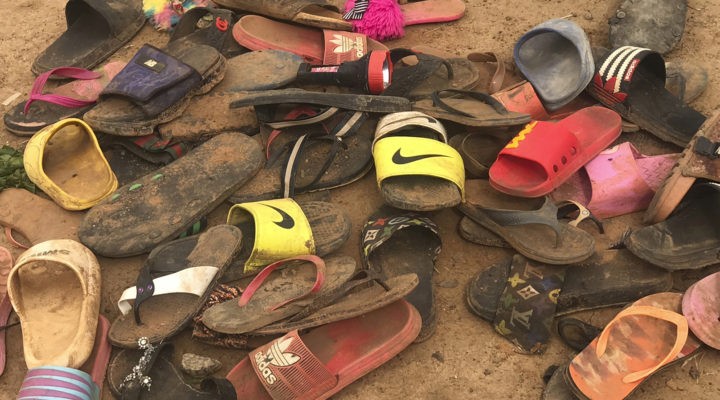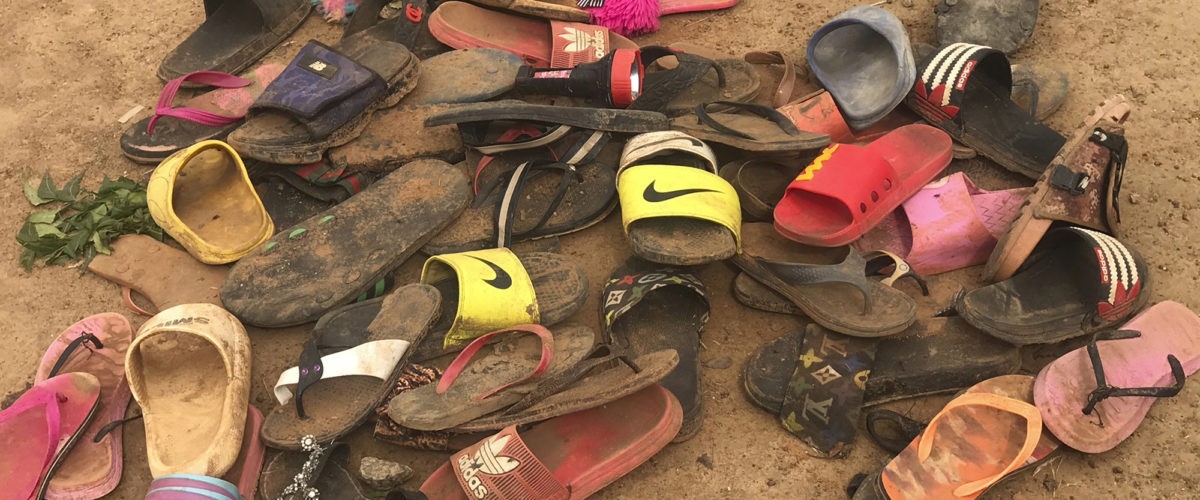Two weeks after more than 120 students of Bethel Baptist High School in northern Nigeria were kidnapped by gunmen, 28 of them have been released by their captors.
The release of the students happened four days after the Eid-el-Kabir, a Muslim annual festival celebrating the value of sacrifice, which saw many Nigerians of diverse faith offering supplication to God for the country’s challenges and calling on their leaders to re-dedicate themselves to the service of their people. Prior to now, one student reportedly was released by the kidnappers because of health reasons. While the release of some of the kidnapped students brought joy to their families, those whose children are yet to be released remain distraught.
 Apart from the Bethel Baptist High School students, many schoolchildren and students of tertiary institutions in Kaduna State and beyond have, over the past months, been abducted from their schools. One abduction happened in Tegina in the north central part of the country, in late May when 136 students of Salihu Tanko Islamic school were abducted by gunmen in a raid that killed one person and left another seriously injured.
Apart from the Bethel Baptist High School students, many schoolchildren and students of tertiary institutions in Kaduna State and beyond have, over the past months, been abducted from their schools. One abduction happened in Tegina in the north central part of the country, in late May when 136 students of Salihu Tanko Islamic school were abducted by gunmen in a raid that killed one person and left another seriously injured.
Such brazen, daredevil attacks and kidnappings point to the security challenges Nigeria, Africa’s most populous and religiously diverse country, is facing. The challenges are a source of concern to many within and outside the country, including the Christian Association of Nigeria, which in its Eid-el-Kabir message called for prayers for the country to overcome and become a stronger and better country. The Christian body also challenged “both the leaders and the followers of Islam to continue to embrace the virtues of love, peace, unity, kindness and sacrifice, as exemplified by the Holy Prophet Muhammad, during and after the Eid-el-Kabir celebrations.”
The circumstances that led to the release of the 28 Bethel Baptist High School students remains unclear. Were they released on compassionate grounds or did the kidnappers receive ransom payment as demanded?
The kidnappers were said to have demanded the sum of 60 million naira (about $146,000) before the students would be released. Sources say that, in the event of the failure of the government to rescue the students, some parents were mobilizing to gather what they could to rescue their wards.

Israel Akanji
Speaking on ransom payments or demands, Israel Akanji, president of the Nigeria Baptist Convention, in an interview with Vanguard newspaper wondered how people are expected to cope with such huge demands of money. “Where did they want the parents to get that amount of money? If they had money, they would not have brought their children to a missionary school in the first instance. Not only that, the bandits are also making all sorts of demands asking parents to bring food, bags of rice, bags of garri and if you are able to take food to them, you are elongating the stay of the children in their hands,” he said.
Some analysts believe that kidnapping has increased in recent months in Kaduna because the state government headed by Nasir el-Rufai bluntly refuses to negotiate with criminals for ransom. The situation is such that even el-Rufai has had to withdraw his own children from public school in Kaduna as he claimed that his family had become a target of kidnappers. To forestall more attacks in the state, the Kaduna State government closed down some schools in the state.

Nasir el-Rufai
Apart from Kaduna State, other northern states including Katsina, Zamfara, Niger, Borno, Yobe, Kebbi and Sokoto have, over the years, attracted media headlines for a spate of kidnappings.
A July 2021 UNICEF report explained: “In Nigeria, the U.N. estimates that at least 950 students have been abducted from their schools by armed men since December. Over the past six weeks alone, nearly 500 children were abducted in four separate incidents across the central and northwest parts of the country. Many of these children have not yet been returned. It is hard to fathom the pain and fear that their families and loved ones are suffering in their absence.”
Another report by UNICEF added: “One in every five of the world’s out-of-school children is in Nigeria. Even though primary education is officially free and compulsory, about 10.5 million of the country’s children aged 5 to 14 years are not in school. Only 61% of 6- to 11-year-olds regularly attend primary school, and only 35.6% of children ages 36 to 59 months receive early childhood education. In the north of the country, the picture is even bleaker, with a net attendance rate of 53%. Getting out-of-school children back into education poses a massive challenge.”
One in every five of the world’s out-of-school children is in Nigeria.
In a region long suffering from low educational enrollment, the security challenges and school closures in Kaduna and the impunity with which criminals terrorize people with little or no resistance from security forces, compound an already bad situation.
Responding to the Bethel Baptist School attack, Tony Perkins of the United States Commission on International Religious Freedom said: “It is unfathomable that these attacks are still happening in Nigeria with impunity. It has been over four years since USCIRF’s Religious Prisoner of Conscience Leah Sharibu was abducted in a similar attack, and she continues to be held hostage because she will not abandon her faith. The United States must encourage the Nigerian government to do more to rescue these children and prevent future school abductions.”
Related articles:
Three years later, Leah Sharibu is still held captive, reportedly for refusing to renounce her faith
U.S. agency calls for more religious freedom in Nigeria
Boko Haram is still plaguing Nigeria claiming to do God’s work


